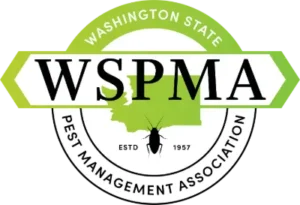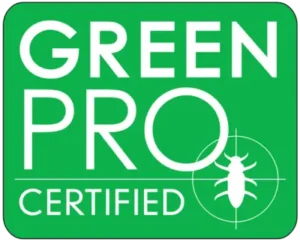Let Us Handle Your Flea Infestation
Fleas are an unwelcome addition to any household. Typically fleas become a problem to owners of new pets such as cats and dogs, and also can become problems for pet owners during heightened activity periods for fleas, such as summer and fall. Many pet owners can keep flea infestations at bay by using popular flea treatment medications for their pets, but unfortunately these types of treatments won’t address a home with a flea problem.
When assessing a flea problem, there are many factors to take into account, such as outside environment, how the fleas got in, and the extent of the flea infestation. Many times homeowners will opt to call upon a flea exterminator in order to understand the situation, and learn how best to deal with it. If you decide that you need professional flea extermination services, United Pest Solutions offers certified help to get your home flea free.
Effective Strategies for Avoiding Future Flea Infestations
Once we have successfully eliminated the flea infestation in your home, it’s important to take steps to prevent future outbreaks. Fleas can be persistent pests, so it’s crucial to implement preventative measures to keep them from returning. Here are some tips to help you avoid another flea infestation:
- Regularly vacuum your home, focusing on areas where your pets spend time
- Wash your pet’s bedding and toys frequently
- Treat your pets with flea prevention products recommended by your veterinarian
- Keep your yard and outdoor areas well-maintained to reduce flea habitats
- Consider scheduling regular pest control treatments to keep fleas and other pests at bay
- By following these preventative measures, you can help ensure that your home remains flea-free and that your family and pets stay comfortable and healthy.
Flea Infestation Resources & Information
Fleas are a dreaded pest for any homeowner to realize they have a problem with. Aside from the thought of knowing these pests are invading your home, these pests can bite leaving annoying itchy welts that can take days to go away.
Flea bites can also be dangerous. There have been many recorded cases of fleas transmitting bubonic plague, this often happens when fleas transmit this disease from host rodents or wildlife to humans. Although these cases are rare, they illustrate the dangers of fleas, especially if left untreated.
Read the Washington Post news story: Oregon teen contracts bubonic plague from flea bite
If you decide you need professional help with a flea infestation, United Pest Solutions offers free expert phone support to answer any questions you may have.





Flea Facts – Extermination & Control
Anyone who has had fleas in their home or building knows that they are about as intrusive as any pest can be, biting family members, guests and pets. Fleas can be a source of embarrassment and emotional distress, making the home almost uninhabitable.
General Flea Facts
- There are over 2000 species of fleas worldwide
- The most commonly encountered flea in American households is the cat flea
- The cat flea is not exclusive to cats, but attacks other pets, including dogs and is aggressive biter of humans
- There are approximately 8 other species of flea that are encountered in the United States
- For example, the Northern Rat Flea, often associated with the house mouse and Norway rat, may require a significantly different control approach than the cat flea
- The Flea is known as “The Wingless Pipe”
- “The wingless pipe” is the definition of the order of insects of which fleas are a part
- This name is appropriate due to the flea being equipped to pierce the skin and suck blood
- Blood flows through a fleas body like water flows through a pipe
Andy’s Facts
- Flea eggs are about .50 mm long and hatch within ten days, under normal conditions
- The mated female lays her eggs on the host animal, but they can fall off and hatch almost anywhere
- Females will lay several dozen eggs per day for up to three months, accounting for rapid population growth
- Flea larva require 50% humidity or greater for survival
Home Flea Inspections
United Pest Solutions is family owned and has operated in the Puget Sound area for ALMOST 60 YEARS. Protecting our health and home in an environmentally responsible way must go hand in hand and has been the cornerstone of our company since its inception.
Commercial Flea Inspections
Fleas are tiny pests, but if they’re found, they will scare away customers and pose health risks to employees. Since it is important to keep a business pest free, it is wise to hire a commercial pest control company to prevent flea infestations.
Flea Infestations- When Is It Time to Call a Professional?
The discomfort caused by flea activity in the home due to the itchy bites fleas leave with their victims can affect the whole family. Waking up with numerous bites on legs and arms is a sign that the home is experiencing an occurrence of a flea infestation. Watching the family pets repeatedly groom, lick and scratch the areas of the bite marks can be distressing. Checking the pet’s fur for flea dirt and feces is another way to spot flea activity. Deep within their undercoat, flea dirt will look similar to coarse black pepper. It can also be found in pet beds, carpets, rugs and any area the animals reside. Checking with a veterinarian and pest control expert is advised.
Fleas Bites May Cause More Than Itching
Bites from flea infestations are notorious for the discomfort that they cause. Usually, their victims are small mammals, rodents, family pets and, of course, humans. The illnesses fleas pass on to their hosts are generated by bacteria, viruses and parasites that they carry from past bites. Fleas have been identified for causing the plague, meningoencephalitis, Bartonella, Lyme disease, Ehrlichiosis, and parasitic dermatitis. If not caught early these illnesses can be fatal to those bitten; immediate attention is required from medical and flea infestation professionals.
Risks Of Fleas
Fleas transmit diseases when they feed on the blood of their host animal. Humans, cats, dogs, and smaller mammals are usually their victims. The various species of fleas carry specific protozoan parasites, bacteria, and viruses which can cause serious illnesses in their hosts. These illnesses can be fatal if not caught in the early stages of the disease, which is the leading dangers of flea bites.
- Serious Flea-Borne Diseases
- Anemia and iron deficiencies
- Bartonella
- Ehrlichiosis
- Lyme Disease
- Meningoencephalitis
- Parasitic Dermatitis
- Plague
- Rickettsia
- Tapeworms
Flea-Borne Disease Symptoms that are cause for concern
Several symptoms beyond the itch can result from a flea bite. It is not just an annoyance but it usually accompanied by red swollen spots with a puncture similar to a mosquito bite. More severe symptoms from flea bites can also develop. If they do, it’s important to seek immediate medical advice. The dangers of flea bites are real and can cause irreversible consequences.
- Chest pain – tight, crushing pain, or heavy pressure in the chest region
- Chills – the sensation of feeling cold
- Delirium – acute confused state
- Dyspnea – difficulty breathing
- Fatigue – extreme exhaustion
- Fever – hyperthermia as in an increase in body temperature
- Hemoptysis – coughing up blood
- A Headache – severe head and neck pain
- Hypotension – extremely low blood pressure
- Malaise – the sense of feeling extremely ill
- Shock – fast, shallow breathing, weak but rapid pulse, cold, clammy skin, fainting, weakness, and/or dizziness
- Hive-like lesions – raised red patches on skin
If one or more of the symptoms is seen, medical advice should be sought. Many times there are topical treatments available for the minor symptoms. For the more severe signs of illness, stronger oral medication may be required. Treatments will differ depending on the patient to combat the dangers of fleas. Antifungal and antibiotic medicines are also available depending on the severity of the disease caused by the flea bite.
For the family’s protection, it is necessary to entirely remove the possibility of further flea attacks and infections. A team of professional pest control experts should be contacted. With their experience, they will be able to help remove any dangers of fleas that exist. Administering professional measures to exterminate the fleas along with periodic applications should assist in deterring any future infestations.
How to Keep Fleas from Coming Back
Removing fleas from the premises takes time and perseverance. It is not complicated but the actions required need to be thorough. Several of these measures may need to be repeated several times to assure the property is free of these pests, keeping fleas from coming back.
Steps to Getting Rid of Fleas
1st Step – Find the Source of the Flea Infestation
When it has been discovered that both the family and pets are suffering from flea bites, determining where the fleas came from is imperative. Several areas of the home should be checked for help keeping fleas out of home:
- Carpets and Rugs
- Pet bedding
- Family bedrooms, where pets may sleep
- Furniture
- Car rugs and upholstery if animals have been transported
- Mulch in gardens
- Cracks and crevices around home where they may be gaining entrance
- Basements, crawl spaces, garages, and yard for nests of rodents and small mammals that attract fleas
2nd Step – Wash and clean affected items
It is important to give the property a thorough, systematic cleaning to remove these insects, keeping fleas out of home. Cleaning sheets, blankets, bedspreads and towels from the entire house need to be washed in the hottest water possible. Then all the floors and carpeting need to be vacuumed as well as all the furniture and pillows. When finished with vacuuming, remove the vacuum cleaner bag or canister and place the debris collected in a tightly sealed bag and put immediately out in the trash. Then wash all the hard surfaces, looking for any debris or dead fleas. If you see even one flea after the first cleaning, it would be wise to wash the area again. One flea usually means there are more to follow.
For keeping fleas from coming back, wash your pets in special flea shampoo. This shampoo is devised to ease the pain from the itching and kill any fleas on the pet. Veterinarians will have medically approved flea baths and applications to keep your pet safe. They also have monthly applications to maintain flea and tick prevention.
3rd Step – Hire a professional flea control team
For guaranteed service and professionally designed treatment strategies that continue keeping fleas out of your home, call a professional. Their multifaceted programs are proven effective to remove fleas. They know the ecologically approved methods to keep both the outside and inside of the home clear of any further infestations. Preventing fleas from developing into a major problem in the home is a job for the pros. With their expertise, they will know the recommended treatments to keep everyone in the home safe from flea bites and disease.
